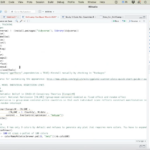Understanding Calories in a Teaspoon of Peanut Butter
Calories in tsp of peanut butter: Peanut butter is a popular and versatile food that is loved by many for its rich, creamy texture and nutty flavor. It is a good source of protein, healthy fats, and essential nutrients, making it a staple in many households.
However, for those looking to manage their calorie intake, it’s important to understand the caloric content of peanut butter, especially when consumed in small quantities like a teaspoon.
In this article, we will delve into the topic of calories in a teaspoon of peanut butter, exploring its nutritional value and implications for your diet.
Caloric Content of Peanut Butter
Peanut butter is a calorie-dense food due to its high fat content, but it also provides a good amount of protein and some essential vitamins and minerals.
A typical serving size of peanut butter is around 2 tablespoons, which contains approximately 190 calories.
When broken down to a teaspoon, which is roughly one-third of a tablespoon, you can expect a teaspoon of peanut butter to provide around 63-64 calories on average.
Nutritional Profile of Peanut Butter
Despite its calorie density, peanut butter offers a range of essential nutrients that can benefit your overall health. Here is a brief overview of the nutritional profile of peanut butter per teaspoon:
- Calories: As mentioned earlier, a teaspoon of peanut butter contains around 63-64 calories.
- Fat: Peanut butter is rich in healthy monounsaturated and polyunsaturated fats. A teaspoon typically provides 4-5 grams of fat, with minimal saturated fat content.
- Protein: Peanut butter is a good source of plant-based protein. A teaspoon contains around 2-3 grams of protein.
- Carbohydrates: Peanut butter has a small amount of carbohydrates, with a teaspoon providing approximately 2-3 grams, including dietary fiber.
- Vitamins and Minerals: Peanut butter contains essential nutrients such as vitamin E, niacin, magnesium, and phosphorus in small amounts.
Impact of Peanut Butter on Your Diet
While peanut butter can be a nutritious addition to your diet, it’s important to consume it in moderation, especially if you are watching your calorie intake.
Here are some key considerations regarding the impact of peanut butter on your diet:
- Calorie Management: Due to its calorie density, it’s easy to overconsume peanut butter, leading to an increase in overall caloric intake. Be mindful of portion sizes, especially when using peanut butter as a spread or in recipes.
- Nutrient Balance: While peanut butter provides essential nutrients, it’s important to balance your overall diet to ensure you are meeting your nutritional needs without exceeding your calorie requirements. Incorporate a variety of foods to maintain a well-rounded diet.
- Allergies and Sensitivities: It’s essential to be aware of any allergies or sensitivities to peanuts when consuming peanut butter. If you have a peanut allergy, consider alternative nut or seed butters as a substitute.
Tips for Including Peanut Butter in Your Diet
If you enjoy peanut butter and want to incorporate it into your diet while managing your calorie intake, here are some tips to help you do so effectively:
- Use in Moderation: Be mindful of portion sizes and limit your consumption to avoid excessive calorie intake. A teaspoon of peanut butter can add flavor and nutrition to your meals without significantly increasing your calorie intake.
- Pair with Balanced Foods: Combine peanut butter with foods that provide fiber, protein, and other essential nutrients to create a well-balanced meal or snack. For example, spread peanut butter on whole grain toast or mix it into a smoothie with fruits and vegetables.
- Opt for Natural Varieties: Choose natural peanut butter that is free of added sugars, hydrogenated oils, and preservatives for a healthier option. Natural peanut butter typically contains just peanuts and salt, preserving its nutritional value.
Conclusion
In conclusion, a teaspoon of peanut butter provides around 63-64 calories and offers a mix of healthy fats, protein, and essential nutrients.
While peanut butter can be a valuable addition to your diet, it’s crucial to consume it in moderation and consider its caloric impact.
By being mindful of portion sizes, balancing your overall diet, and choosing high-quality varieties, you can enjoy the nutritional benefits of peanut butter without compromising your calorie goals.
Incorporate peanut butter creatively into your meals and snacks to make the most of its flavor and nutritional value while maintaining a healthy diet.














